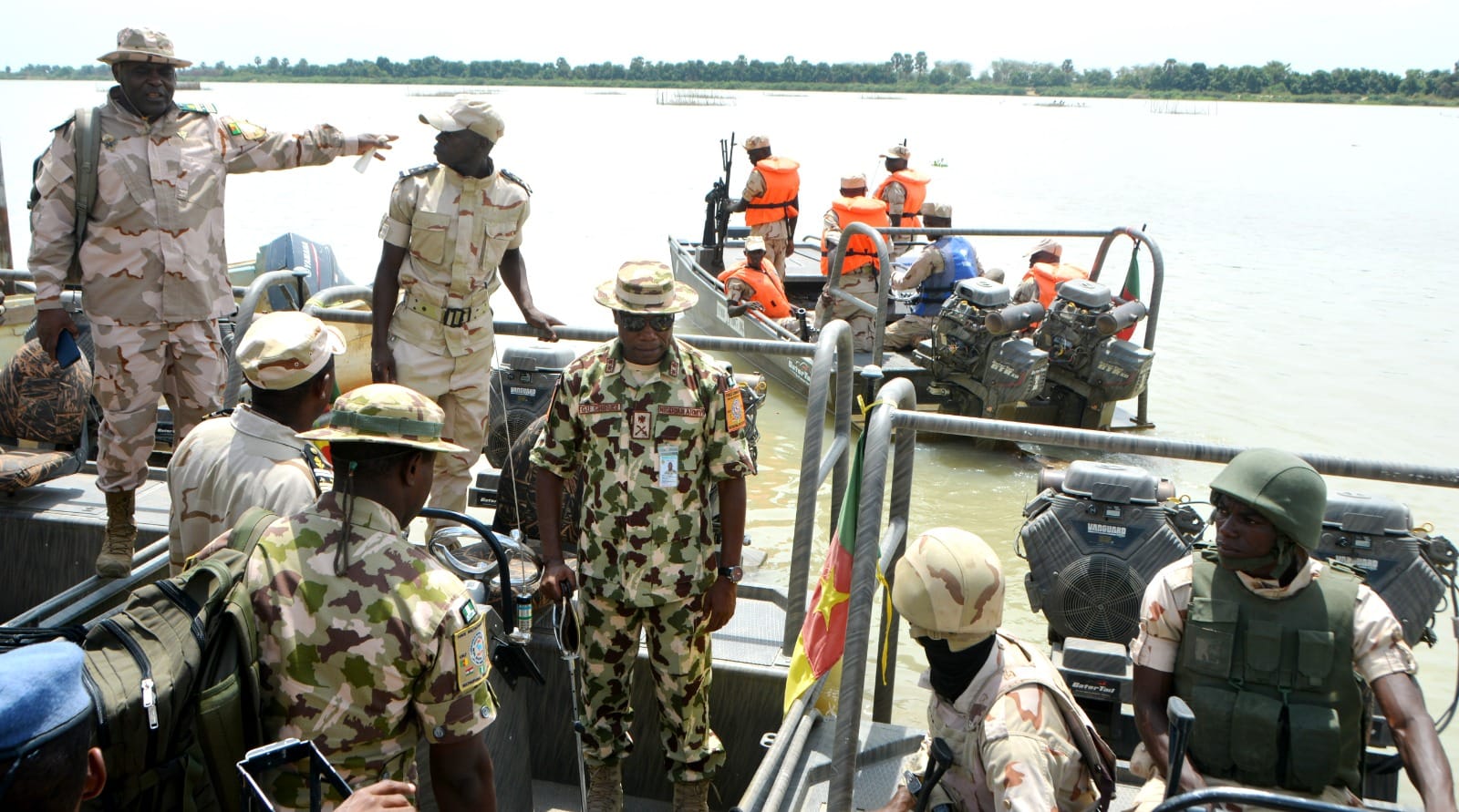
1The Multinational Joint Task Force (MNJTF) has bolstered its operational readiness in the Lake Chad Basin with the addition of five swamp buggies, delivered through a strategic donation by the Borno State Government of Nigeria and the North East Development Commission (NEDC).
The equipment was formally handed over in a ceremony held at the Lake Chad Fish Dam Naval Base, drawing senior military and civilian figures from Nigeria and Chad. The swamp buggies are designed to enhance mobility in marshy, hard-to-reach areas—vital terrain in the fight against insurgency and for the revitalization of local economies.
Representing Governor Babagana Umara Zulum, Borno State Deputy Governor Alhaji Umar Usman Kadafur emphasized the significance of the contribution, stating, “These swamp buggies will help optimize the cleaning and maintenance of the waterways, facilitating smoother navigation, which is essential for security and the resumption of commercial activities on the lake.”
The MNJTF, a regional coalition comprising troops from Nigeria, Chad, Niger, and Cameroon, plays a key role in counterinsurgency operations across the volatile basin, which has been a hotspot of extremist activity for over a decade.
Major General Godwin Mutkut, Commander of the MNJTF, expressed appreciation for the logistical support. “This equipment will strengthen our riverine operations, enabling us to respond more effectively to persistent terrorist threats. It will also contribute to creating a safer environment for riverine communities, thus promoting the gradual return to normalcy,” he said.
The event was attended by notable figures including the Governor of the Lake Chad region, General Saleh Haggar Tidjani, military commanders, traditional leaders, and regional government representatives, underscoring the multinational effort to confront shared security challenges.
The deployment of the swamp buggies is part of broader regional efforts to reclaim security, restore livelihoods, and reestablish commerce in one of Africa’s most strategically sensitive and environmentally fragile regions.
As threats evolve, such tools become vital assets in securing both borders and communities dependent on Lake Chad’s rich but embattled ecosystem.



